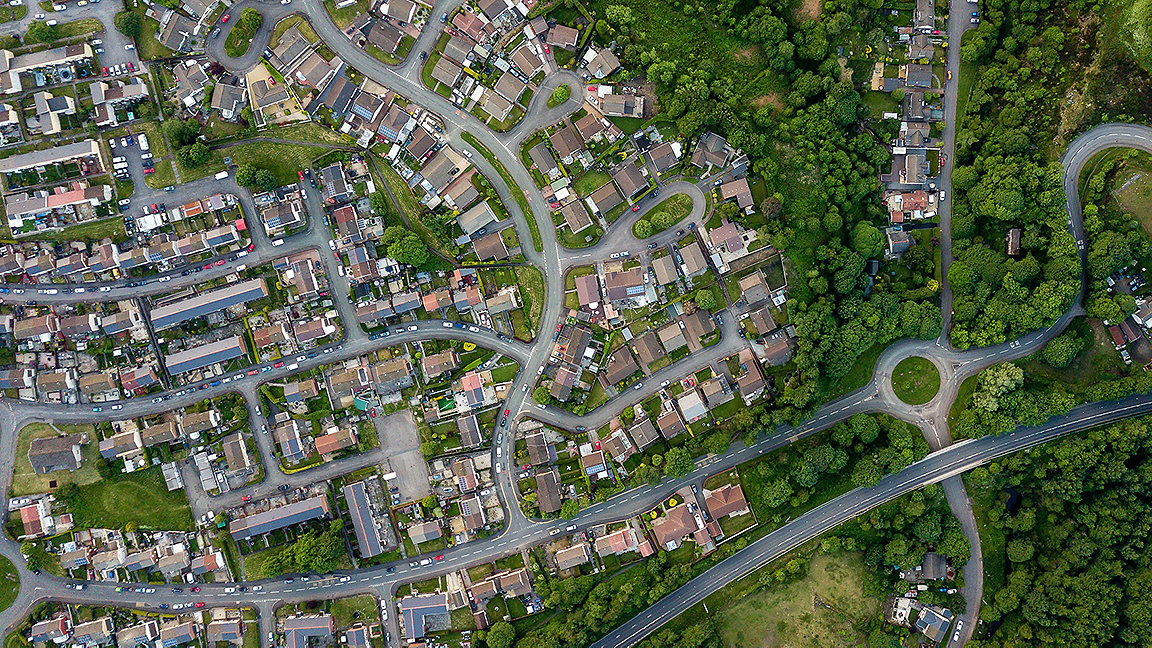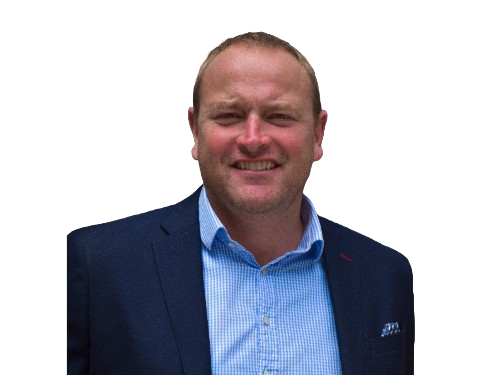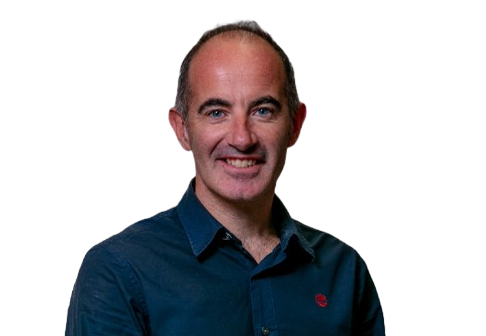
Construction Journal: To begin with, can you tell us how you initially learned about B Corp certification and decided that you wanted your business to become certified?
James Beckly: In 2017, we were transitioning the business to a limited liability partnership (LLP) to support a custodianship model that we were developing. The aim was to give our business longevity, something we could pass on to the next generation.
Andy Snapes, who was the senior partner at that point, had been at an event and found that a lot of creative industries were becoming B Corp-certified.
He came back to the board of seven of us and said: 'I've been talking to other creative industries and they're all B Corps. And I think that because we're on this journey of becoming an LLP, it's a really good fit.'
We learned more about B Corp and realised that it corresponded with where we were already going as a business. Through our strategic plan, we could align with B Corp's five pillars, which relate to governance, workers, customers, environment and community.
At the same time, B Corp encourages you to make a profit. It acknowledges that profit will promote better behaviours if you use business as a force for good.
We also recognised that, from a community and people perspective, and from the perspective of the climate crisis, that our business had to get involved.
Quite early on we realised that for us to remain relevant, it's important for people to know that when they secure our services they're getting a business that will do all it can to do the right thing, and that we will also challenge them in the right way.
This enables us not only to have a positive impact on the communities in which we operate, but also allows our staff and our people to make sure that we make the right decisions.
Scott James: I think B Corp was a natural fit for where we were as a business and where we wanted to go. Part of the reason is its comprehensive framework: there's constant movement and improvement.
We're part of B Corp's built environment working group in the UK. As you'd expect of the creative sector that led uptake of B Corp to start with, architects had been the driving force, and were still disproportionately represented.
When we became a B Corp in 2020, two-thirds of around 20 businesses in the working group would have been architects. Now there are more than 70 members, and there are many more chartered surveyors.
We were the first chartered surveying company in the world to become a B Corp, but now more are coming on board there's so much work we can do together to change the profession rather than work in our silos.
B Corp is always refreshing itself as well. The current standards are being updated, and it's going from the original five pillars to nine. These will consider even more factors, and as we're part of that process we feed back on what we feel our sector should be doing.
JB: Another consideration is that our profession has always struggled with recruitment. It wasn't one of our reasons for becoming a B Corp, but we've found we're now getting a more interesting, diverse group of people who want to work for us.
We have some particularly bright graduates who have been with us for a year or a year and a half, and they're having an impact in the business because they're looking at things differently. And they feel encouraged to do so because of the journey that we've been on.
Our head of people and culture will tell us consistently that the main reason potential recruits actively approach us is B Corp, so there's a direct alignment between what we're striving to do as a certified business and their values.
SJ: In the three years since becoming a B Corp we've doubled the size of our team.
JB: And if you look at our profit and our turnover, you see a significant uptick from the moment in 2020 that we became a B Corp. That's for a variety of reasons.
It's partly because we're attracting better people. It's also likely to be because we've opened some avenues with partners, collaborators and clients that have led to new opportunities. So it's undoubtedly had a positive impact on us as a business.
CJ: Initially, how did you achieve B Corp status? Did you have to complete an impact assessment?
SJ: We started to focus on achieving certification in autumn 2019. The core team of myself and Andy, along with an external adviser – sustainability expert Chris Hines – started to map who we needed to get involved from across our business.
We needed input from finance, HR, legal and so on, to pull together all the data that the 200-point assessment is judged against.
Then we spent around six months looking at where we had gaps, and we improved our systems and policies over that time. In spring 2020 we submitted our application, and went through a three-month audit with B Corp.
It gives you an external adviser who goes thoroughly into the detail of the five pillars. We were constantly providing evidence over those three months until June 2020, when we were certified.
Not only did this validate a lot of the good work we felt we were doing, but we also found we were going above and beyond in some areas that we hadn't realised.
For instance, we have a programme called Ward Williams Futures that goes all the way from engaging with schools and offering work experience, right through to our apprenticeship scheme and career development opportunities as far as retirement planning. B Corp calls this workforce development, and it gave us many additional points.
Since 2020, we have tried to improve on this further and develop it in an even more robust way. Four years ago we had five or six apprentices and we've now got 23, out of 180 staff – that's quite something.
We're also celebrating our 50th year in business in 2024. Andy first joined as a 16-year-old on the Youth Training Scheme, and 40-plus years later, he has been a driving force behind our improvement and values. It's a lovely story.
JB: Linking back to custodianship, we also needed to amend our members' agreement so that every partner in the business signed up to B Corp's articles of association. By doing so, each of us is effectively stating what we are going to do and the principles we must adhere to.
That's significant, because as partners we're all self-employed. So it is integral to our partnership agreement that we operate in the in the way set out by our B Corp status.
SJ: We've just completed our first three-year cycle of certification, during which we improved on our initial score. This was already very good at 135 points, out of 200, in 2020 but now we've taken it to 163.9.
For context, businesses need to achieve a score of 80 to be certified. We understand that we're the highest-scoring B Corp in the UK across all sectors; potentially one of the highest in Europe.
It's really positive that a business that started out with the right values five decades ago adopted B Corp 45 or so years later, and it's still improving.
CJ: How has B Corp status influenced your clients? Do you find people coming to you because of it? Do they have to operate differently as a result?
JB: Undoubtedly, the figures – profit, revenue growth, churn rates and key performance indicators – all suggest that B Corp has had a positive effect on the business in terms of our growth.
At a more operational level, on any given project, I would say that clients such as local authorities are quite motivated by that.
Increasingly, we're finding clients are considering the sustainability requirements that need to be included within projects and programmes, and also which businesses they can trust to help them identify their needs. But I think there's still a long way to go.
Whether people admit it or not, price is still a huge factor in public and private sector decision-making. I think that for us to reduce our impact on the environment, we need to change the way we agree fees because currently it doesn't lend itself to innovation.
I understand that commercial pressures make it hard, and the cost of land makes it difficult for developers to get things to stack up. Nevertheless, I think there are better ways of being engaged by procuring consultants.

James Beckly
CJ: Have there been any surprises or extra benefits that came from joining B Corp?
SJ: When I became a co-chair of B Corp's UK Built Environment Working Group, which includes peers across construction, I found everybody was actually so open and collaborative, sharing information and best practice with each other. It was a real eye-opener. This is so heartening to see, and it creates much more positive outcomes.
We have embraced collaborative methods in our work with partners across the developer, renewable energy and manufacturing sectors to create Solar Tree, a new solar canopy and electric vehicle infrastructure business launching this year.
Bringing together the built environment, natural environment and energy sectors to drive holistic solutions that deliver positive environmental and financial benefits is something that really excites us alongside offering the core disciplines we have built our reputation on.
JB: I think becoming a B Corp has supported the achievement of our objectives and is shaping our vision.
The certification has helped us upgrade our service offering and our impact in the sector.
For example, integrating whole life carbon assessments into our core services has been a focus for our team, and we are excited about the impact of this across our client base, along with broadening our surveying and project management skills into retrofitting to ensure we help deliver fabric, energy and overall performance benefits to clients.
Another example is our launch of White Box Construction Management, through which we're able to influence the environmental credentials, purchasing, biodiversity and emissions, and how we operate on site in general.
This has all come from this decision to become a B Corp – a journey that we continue.

Scott James
James Beckly is senior partner at Ward Williams
Contact James: Email
Scott James is a partner at Ward Williams
Contact Scott: Email

